Summer's here, and as the temps go up, so do solar installations!
While many of our customers use solar to power their homes, others start by purchasing just the amount of panels they need to power their air conditioners.
If budget or space constraints are holding you back from purchasing a solar system, this is one way to go. You can also get the rest of the panels later and still benefit from lower energy bills and higher efficiency in the long run.
This comprehensive guide will explain how to calculate how many solar panels you'll need to power your air conditioner.
Let's get powered up!
Why using solar panels to power your air conditioner makes sense
Air conditioners draw significant energy, especially during the hot summer months. When you look at the numbers, you may be surprised by how much they cost you. Using solar panels to power your system will offset those high energy bills and maintain those cool summer temperatures you need. Additionally, since solar panels have a lifespan of at least 25-30 years, investing in them as a power source for your air conditioner is a wise financial decision.
Solar is also sustainable, renewable, and green energy, which means using it contributes to the future of our planet.
How many solar panels do you need to power your air conditioner?
We'll get right into what you came here for. But first, some math is in order.
First, you need to calculate hourly energy consumption requirements.
Step 1: Calculate your hourly AC usage in watts. You can get an estimate of your system's wattage here.
A reasonable estimate for a large central AC is up to 3,500 watts/hour, whereas a window unit typically burns up to 1,500 watts/hour. We'll use a central AC for our calculations.
Step 2:
We will now need to determine how many panels we'll need to cover 3,500 watts per hour.
Most residential solar panels range from 250-400 watts. We're going to use both numbers to be safe.
3,500/ 250= 14 and 3,500/400= 8.75. We'll round 8.75 to 9.
Step 3:
It's wise to plan for an extra 20% of materials to account for shade, future damage to solar panels, or degradation. Budget for anywhere from 2-3 additional panels.
So we're looking at 11- 14 panels to power an A/C.
Most homes use 20-25 panels to cover complete projects, so it makes sense that an A/C would use up close to ½ of that, considering their high energy consumption.
One more look at the math:
Step 1: AC produces 3,500 watts per hour
Step 2: 3,500 watts/250-watt panels= 14 panels, 3,500 watts/400-watt panels= nine panels
Step 3: Multiply nine panels and 14 panels by 120% to get 11 and 16 panels
Armed with these numbers, you can now make a decision that benefits your lifestyle, your wallet, and even the environment.
Multiple types of air conditioning units
We mentioned window AC units here and primarily focused on central AC units, but several solar AC units are available on the market. They range from small, portable models designed for individual rooms to larger central systems capable of cooling entire buildings.
Some units use thermal energy to cool the air, while others rely solely on solar panels to power the cooling process directly. There are options for residential and commercial customers, with some models offering innovative features like built-in air purifiers or the ability to function as both a heater and an air conditioner.
If you're interested in using solar panels to power your AC, discussing its specifications with an installer is essential. Because solar panels use inverters to convert sunlight into energy that your A/C uses, the chances are strong that your system will be compatible. But you should still speak with a professional before getting deep into the research process or purchasing a new A/C system.
Get it right with Yellowlite
Our pro-solar experts are here to guide you through purchasing your next system, whether it's to power your entire home or just your A/C.
We have over 14 years of experience with projects like this and have what it takes to point you in the right direction.
Contact our sales team today with any questions!



